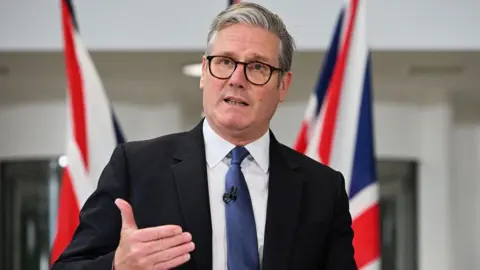In a significant geopolitical development, the United Kingdom has entered into a new agreement concerning the Chagos Islands, a remote archipelago in the Indian Ocean with a complex history rooted in colonialism and international law. This deal involves the transfer of control over parts of the islands and the leasing of a key military installation for approximately €101 million annually, signaling a strategic shift in the region’s geopolitics.
Background on the Chagos Islands
The Chagos Islands, part of the British Indian Ocean Territory, have been a point of contention for decades. In the 1960s and 1970s, the UK separated the islands from Mauritius, which was then a British colony, to establish a military base. The local population, primarily of Chagossian descent, was forcibly removed, leading to ongoing legal disputes and calls for the islands’ sovereignty to be returned.
International courts, including the International Court of Justice (ICJ) in 2019, have affirmed that the UK’s continued administration of the islands is unlawful and that they should be returned to Mauritius. The UK has historically maintained its sovereignty, citing strategic military interests and security concerns.
Details of the New Deal
Recent reports indicate that the UK has agreed to a comprehensive arrangement involving the transfer of some territorial rights and the leasing of military facilities. Under this agreement:
- The UK will transfer certain administrative rights over parts of the Chagos Islands to Mauritius, aligning with international legal recommendations.
- The UK will retain control over a crucial military base on Diego Garcia, the largest island in the archipelago, which has long been a strategic asset for Western military operations.
- In exchange for access to the military base, the UK will pay Mauritius approximately €101 million per year, a figure that reflects the importance of the base and the diplomatic negotiations involved.
Strategic and Economic Implications
This deal represents a nuanced approach by the UK to balancing its strategic military interests with diplomatic and legal pressures. The lease payments serve as a recognition of Mauritius’s sovereignty claims and the need to resolve longstanding disputes.
The Diego Garcia base remains one of the most critical military installations for the US and UK, providing strategic access to the Indian Ocean and surrounding regions. The arrangement ensures the UK retains operational control over the base while addressing international calls for the decolonization and sovereignty of the islands.
Economically, the €101 million annual payments are significant, offering Mauritius substantial revenue and potentially fostering improved diplomatic relations. The deal could also set a precedent for resolving similar territorial disputes through negotiated agreements rather than unilateral actions.
Legal and Human Rights Dimensions
The international community has largely viewed the UK’s actions as inconsistent with the rulings of the ICJ and the UN. Human rights organizations continue to advocate for the return of the Chagossian people to their homeland and for an acknowledgment of the injustices faced during their displacement.
While the new agreement addresses some legal concerns by recognizing Mauritian sovereignty over parts of the islands, critics argue that full restitution and the right to return for displaced residents remain unresolved issues.
Conclusion
The UK’s new deal on the Chagos Islands signifies a pivotal moment in the complex tapestry of colonial history, international law, and strategic military interests. By transferring certain rights to Mauritius and leasing the military base for over €100 million annually, the UK aims to balance its security needs with diplomatic obligations and legal considerations.
As this arrangement unfolds, it will be closely watched by nations, legal bodies, and human rights advocates alike. The outcome could influence future territorial disputes and redefine the relationship between colonial legacy and sovereignty in the 21st century.
Email Us on editorial@nnafrica.com












